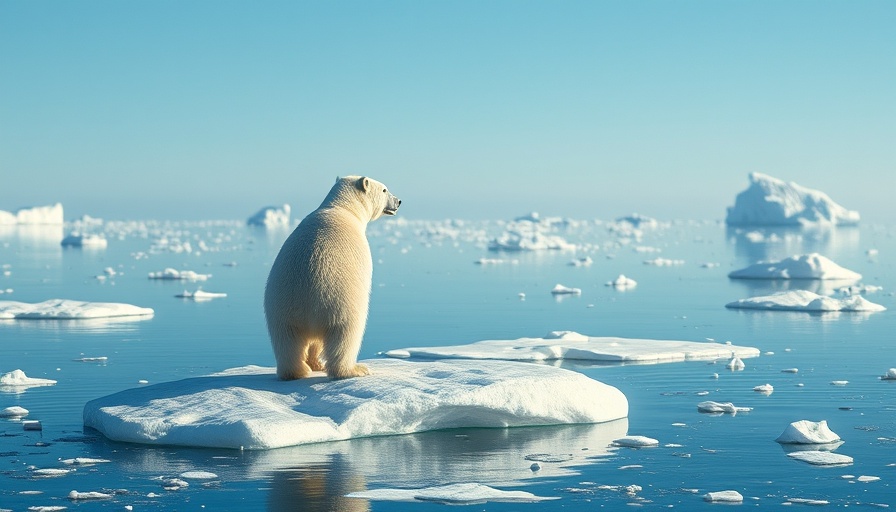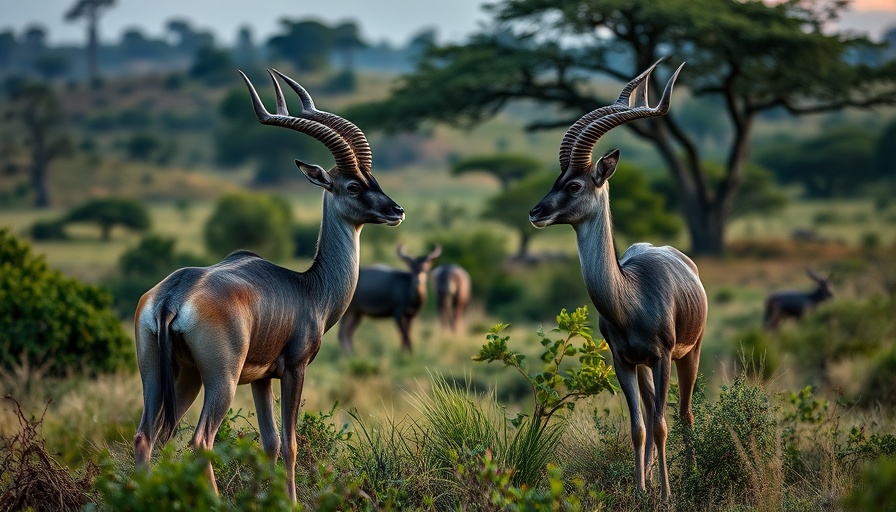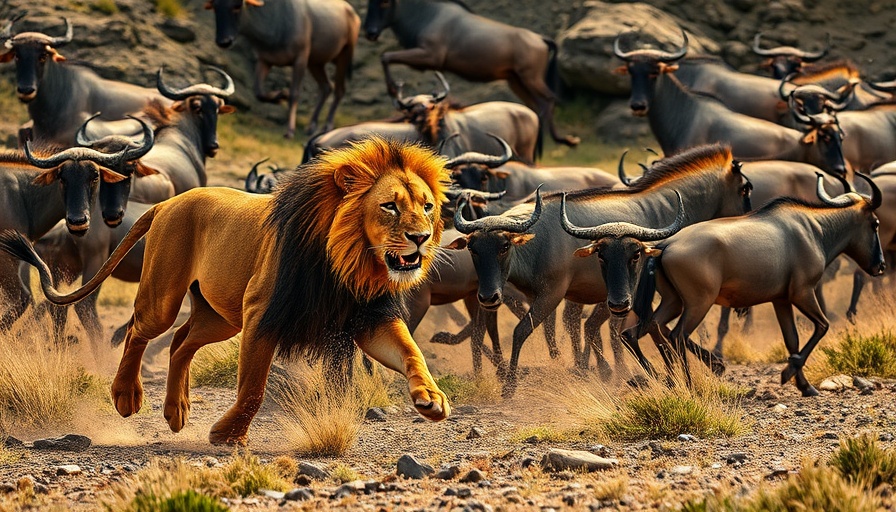
Global Sea Ice Cover at Historic Low: Understanding the Implications
In February 2025, global sea ice reached a record low, a stark indicator of the ongoing climate crisis. According to the EU’s Copernicus Climate Change Service (C3S), the combined area of sea ice around the Arctic and Antarctic dropped to an all-time minimum, validating the dire warnings of climate scientists worldwide. This decline poses serious threats not just to ecosystems but also to global weather patterns and sea-level rise.
What's Behind the Decline?
The new report reveals that Arctic ice extent was 8% below the average for the month, while Antarctic ice was 26% below average. Only early February saw a daily minimum ice cover before it fluctuated below the previous record set in 2023. Samantha Burgess, Strategic Lead for Climate at ECMWF, emphasized the implications: "One consequence of a warmer world is melting sea ice. The record or near-record low sea ice cover at both poles has pushed global sea ice to an all-time minimum. This is particularly troubling as ice reflects sunlight and cools our planet. The continuous decline of sea ice signals a changing climate that impacts everyone, including travelers drawn to the beauty of these regions."
The Impact on Wildlife and Ecosystems
The loss of sea ice is detrimental to various species, including seals and polar bears, who rely on these ecosystems for breeding and hunting. With fewer ice platforms, these animals face significant challenges in their survival, particularly as their habitats begin to erode. Climate change affects not just the wildlife, but also local communities that depend on these species for their livelihoods and cultural practices. As explorers and travelers, understanding these ecosystems offers a glimpse into the intricate balance of life that we risk disrupting.
Future Predictions and Insights
Far-reaching impacts of shrinking ice include changes in weather patterns, ocean currents, and even geopolitical dynamics. As polar ice retreats, new shipping routes open, igniting interest from various global powers. Researchers warn that without immediate and substantial cuts to greenhouse gas emissions, ice regrowth may be significantly hindered, especially in Antarctica. Innovations in travel and ecotourism could offer pathways to help mitigate these challenges by prioritizing sustainable practices while fostering connections between travelers and local communities impacted by climate change.
Travel is Not Immune: What This Means for Explorers
For those with a passion for adventure and exploration, the consequences of climate change have severe implications on the regions we cherish most. An increase in global temperatures could shift the ideal travel seasons, alter landscapes, and diminish opportunities for wildlife encounters that inspire wanderlust. As conscious travelers, it’s essential to reflect on how our journeys impact the environment and to seek sustainable travel options that align with conservation efforts.
Embracing Ecotourism and Sustainability
As travelers, we have the power to influence positive change by choosing ecotourism and sustainable travel practices. Opting for eco-friendly accommodations and supporting local initiatives can significantly lessen our environmental footprints. Exploring South Africa's diverse landscapes, from the breathtaking vistas of Cape Town to the rich biodiversity of the Kruger National Park, can awaken the traveler’s heart while also honoring the natural world that attracts us. By advocating for ecotourism and seeking lower-impact travel itineraries, we can join the fight against climate change.
Join the Discussion: What Can You Do?
Understanding the gravity of climate change is essential for every traveler and explorer. Engage with your travel community, share stories of sustainability, and learn from local cultures. As the world navigates this changing climate, our actions can make waves—quite literally. The future of our favorite travel destinations depends on our willingness to act now, from advocating for green policies to choosing travel options that minimize harm. Let’s make the world a better place for the next generation of travelers, explorers, and adventurers.
As we face unprecedented environmental challenges, it’s crucial that every globetrotter becomes a steward of the planet, taking steps to reduce our impact and promote sustainability. Explore destinations with care and be the voice that supports a healthier, more sustainable world for all.
 Add Row
Add Row  Add
Add 




Write A Comment